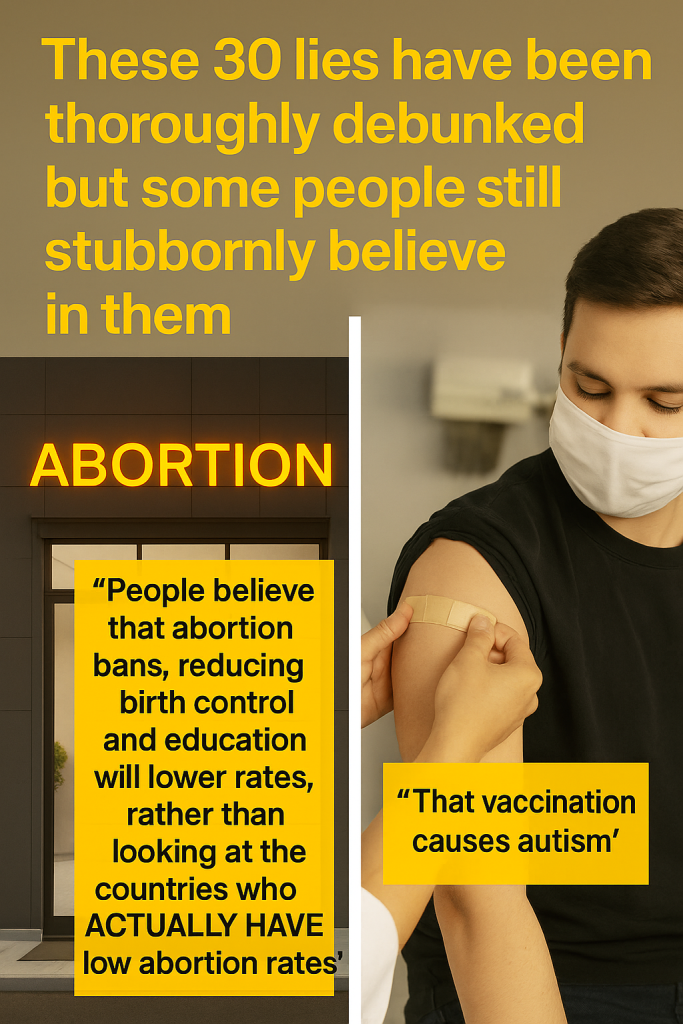Despite rigorous scientific studies and expert analysis, a surprising number of widely circulated beliefs about abortion bans continue to persist. A recent comprehensive review by a leading reproductive health organization has identified 30 common misconceptions about abortion restrictions that have been thoroughly debunked, yet stubbornly remain ingrained in public discourse. Understanding why these myths endure and setting the record straight is vital as abortion laws are once again at the forefront of political and social debates in 2024.
“Misinformation about abortion legislation has serious consequences,” said a spokesperson from a prominent editorial clinic specializing in reproductive health myth-busting. “It not only distorts public understanding but also risks influencing policy decisions that affect millions of individuals.”
Among the most pervasive myths is the belief that abortion bans unequivocally lower abortion rates. In reality, extensive data shows that abortion is a consistent healthcare need with a stable demand across different legal environments. When legal access is restricted, individuals often resort to unsafe methods, leading to increased health risks rather than fewer abortions.
Another debunked lie is the assumption that abortion bans effectively protect fetal life without impacting pregnant people’s health. Research clearly indicates that these laws frequently endanger the wellbeing of pregnant individuals by limiting access to essential medical care, with disproportionate effects on marginalized communities who have less means to travel to areas where abortion remains legal.
The review also addressed misconceptions around the legality and enforcement of abortion restrictions. For example, the notion that abortion bans only affect elective procedures ignores the fact that many laws include limited exceptions—even when complications threaten the life or health of the pregnant person, confusion and fear around the laws create barriers to timely and necessary medical interventions.
Detailed examination of these 30 myths reveals that many stem from misinformation campaigns, outdated data, and politicized rhetoric rather than scientific evidence. Social media platforms, where sensationalized claims spread rapidly, have inadvertently amplified these falsehoods, making educated public discourse more challenging.
Efforts to combat these entrenched myths include targeted educational outreach, clearer communication from healthcare professionals, and transparent presentation of research findings in accessible formats. Many advocates emphasize the importance of relying on expert-reviewed studies and real-world data rather than anecdote and conjecture.
Despite substantial debunking, why do certain abortion-related myths remain so resilient? Psychologists suggest that deeply held beliefs around morality, politics, and personal identity contribute to selective acceptance of facts and resistance to information that contradicts existing views. This confirmation bias complicates efforts to dispel falsehoods, but underscores the imperative for compassionate, fact-based dialogue.
As abortion laws continue to evolve nationally and globally, distinguishing fact from fiction remains a critical challenge. Accurate knowledge empowers individuals to advocate effectively for reproductive rights, understand the nuanced realities of abortion care, and engage thoughtfully in policy conversations.
In summary, while these 30 debunked lies about abortion restrictions persist in public conversation, ongoing efforts to promote truth and clarity provide hope for a more informed and empathetic societal understanding moving forward.



